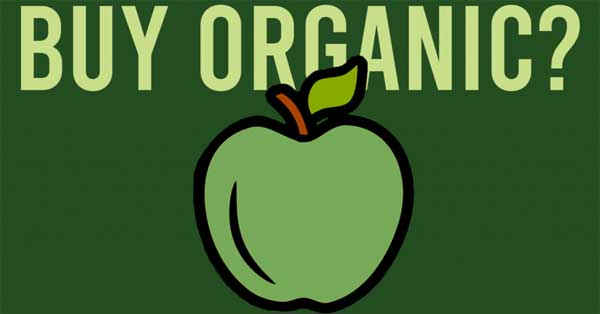Buying organic fruits and vegetables is often the best option for consumers, but rarely the most cost-effective option. However, there are a handful of fruits and vegetables where you are best off sticking to the organic options due to the large difference between organic and non-organic options.
Many of these fruits and vegetables are susceptible to plant diseases and because of these difficulties raising the plants, farmers must counteract these diseases with an increase in pesticides.
1. Tomatoes
The thin layer on the outside of tomatoes (particularly on the smaller “cherry” tomatoes) puts them at risk for a variety of plant diseases. This risk means non-organic tomatoes are loaded with pesticides.
2. Spinach
Tiny bugs called aphids are drawn to spinach, causing farmers to fight off the bugs with pesticides.
3. Grapes
Organic or not, the biggest mistake you can make with your grapes is to not wash them. In order to clear off the pesticides coating your grapes, wash and maybe even re-wash them before consumption.
4. Celery
It’s no secret that celery is filled with water – but the water is actually what makes this vegetable so dangerous. Because celery absorbs water through its roots, any toxins in the soil are at risk of seeping into the rest of the celery stalk.
5. Apples
One of the most popular fruits is actually among the most dangerous. Apples are sprayed with diphenylamine, a chemical that is banned in Europe. This chemical can also be found in other apple products like apple juice or apple sauce when purchased in non-organic forms.
What makes organic food different?
Often times the pesticides associated with non-organic foods are there to help prevent diseases from spreading onto the plant. Without these pesticides how do farmers prevent diseases from spreading over plants?
According to the Mayo Clinic, there are a few farming practices commonly used in organic farming:
- Soil quality is improved using plant waste left on fields (green manure), livestock manure or compost
- Plant rotation to preserve soil quality and to interrupt cycles of pests or disease
- Mulch to control weeds
- Predatory insects or insect traps to control pests
- Certain natural pesticides and a few synthetic pesticides are approved for organic farming and used rarely and only as a last resort in coordination with a USDA organic certifying agent
Because of these extra practices, there are different degrees to which a product can be organic. However only products that are at least 95% organic can carry the USDA organic label that many people look for on products.


